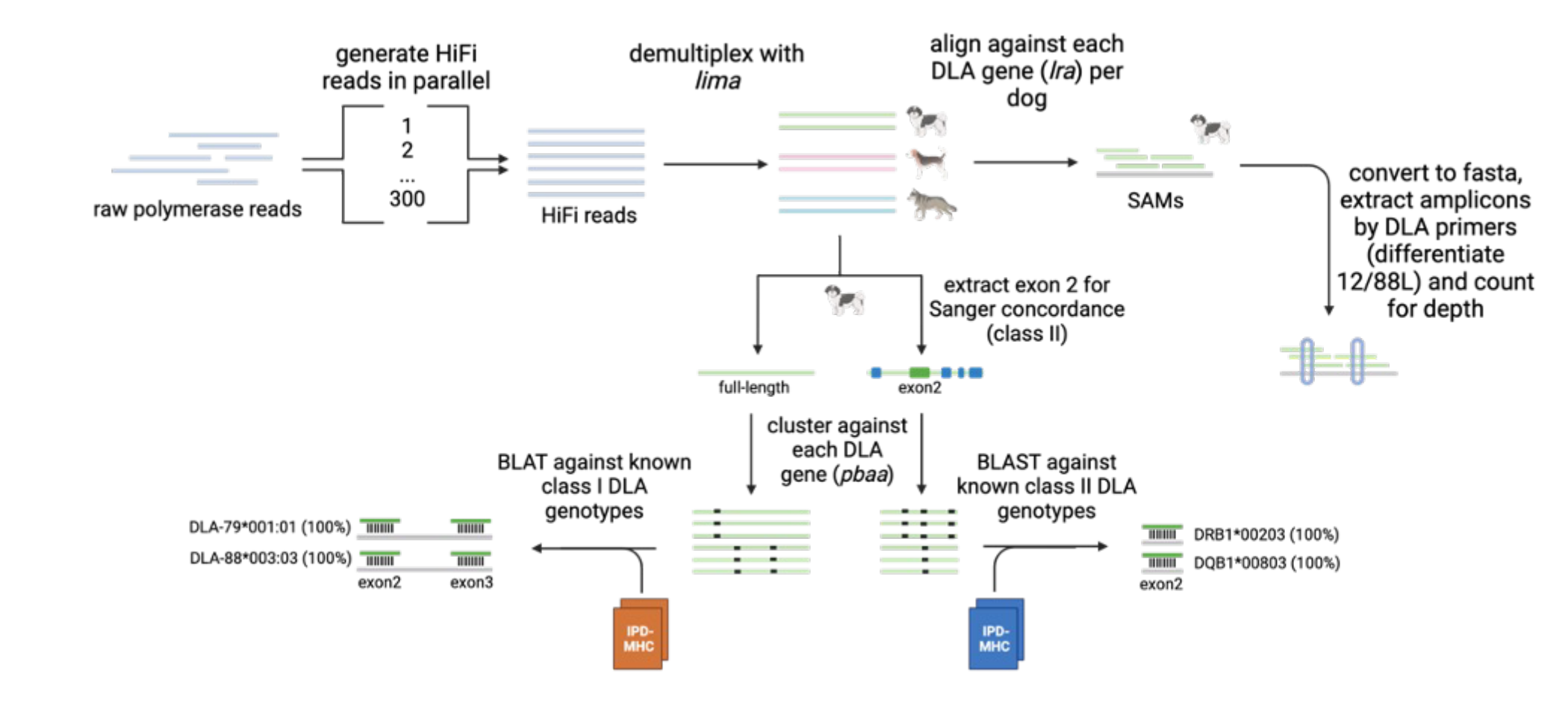A group of genes called the major histocompatibility complex (MHC) genes is among the most important in the immune system. These genes provide instructions to create molecules that help the immune system detect pathogens, and variants in these genes are highly associated with the development of autoimmune diseases. True to its name, the organization of the MHC genes is highly complex. Because of their complexity and diversity, the MHC genes have been very poorly studied in dogs. This has limited the understanding of canine immunology and restricted the usefulness of dogs as a model for many human diseases.
Associate Professor Steven Friedenberg (Veterinary and Clinical Sciences; MSI PI) is working on a project called “Developing novel tools for sequencing and analysis of the major histocompatibility complex loci in dogs,” that will develop a novel, robust, cost-effective, and high-throughput method of studying the full complement of MHC genes in dogs using state-of-the-art sequencing methods and bioinformatics tools. With these methods in hand, researchers will be able to rapidly study MHC genes in large populations of dogs and dramatically improve understanding of the role of these genes in the immune system of dogs. This work will assist in future studies to understand the role of genetics in the development of autoimmune diseases across species. This project recently received an RC Seed Grant.
